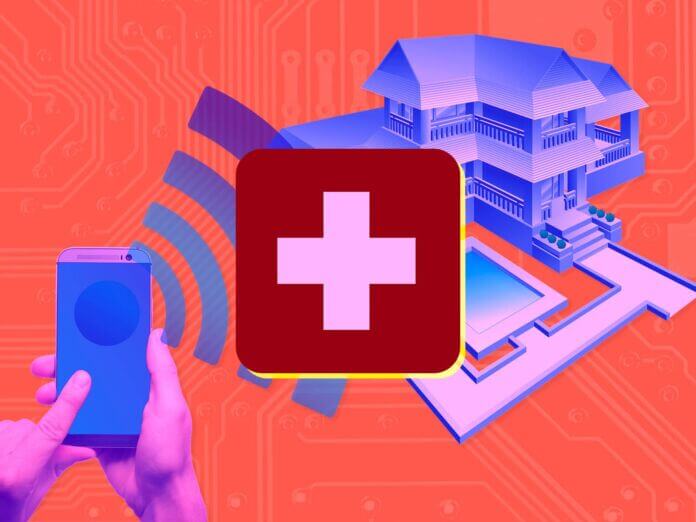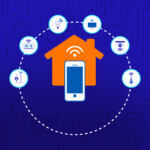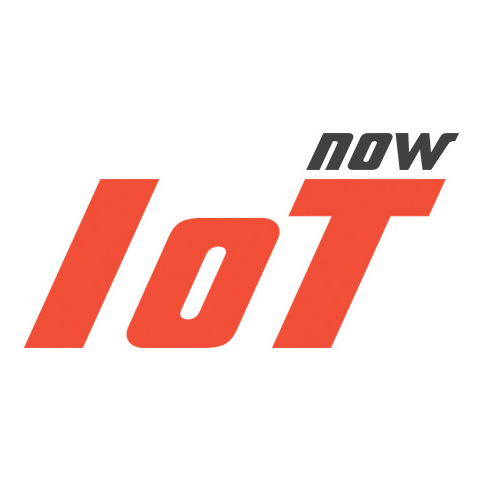
Homes are often the most prominent investment people will make in their lives and they spend more time there than anywhere else. It’s long been known that physical surroundings — from natural light levels to the color of the walls — impact health and happiness. A home’s ability to affect residents is stronger than ever, thanks to new technologies. Smart technology can do more for a house than offer convenience — it can potentially improve its residents’ health and quality of life. Learn more about the health benefits of smart home technology.
“Smart technology can do more for a house than offer convenience — it can potentially improve its residents’ health and quality of life.”
-Shannon Flynn
Benefits of Smart Home Technology
#1: Prevents Illness
Since the COVID-19 pandemic began in 2020, more homeowners than ever have been concerned about preventing illnesses and keeping their spaces clean. Smart home health monitoring technology has stepped up, including UV disinfectant lights to eliminate germs and infrared sensors that detect high temperatures. These devices go the extra mile to keep bacteria and viruses at bay, allowing residents to rest easily.
Additionally, smart technology can monitor indoor air quality (IAQ), one of a home’s most important health factors. According to the Environmental Protection Agency, pollutants can be 2–5 times more concentrated indoors, which has serious health repercussions for residents — including headaches, skin and eye irritation, fatigue, and more serious respiratory conditions. Fortunately, smart IAQ sensors and purifiers work together to detect potentially hazardous air and clean it, ensuring residents can breathe freely in their homes.
#2: Mental Health Care
Virtual assistants and other smart software are increasingly adept at handling the mental health challenges residents may face. As technology adapts to learn a homeowner’s preferences and needs, it can create a calming environment catered to the individual. For example, people with anxiety disorders will feel more secure knowing advanced smart tech is keeping their home safe. Even individuals with more severe mental health challenges may be able to live alone, thanks to remote monitoring and telehealth services available at their fingertips.
Smart technology has mental health care benefits for everyone. Knowing the air quality is safe and the fridge will always be stocked with groceries reduces stress on any homeowner. The luxuries that come with smarter technology are excellent ways to encourage self-care — voice controls make it easier than ever to set the temperature, play music, and get in touch with friends.
#3: Kids’ Education & Development
As children grow, their environment dramatically impacts their health and development. Parents want their kids to have the best resources available, which increasingly include smart technology that encourages learning. With virtual learning more common since 2020, smart homes can also cater to a child’s educational needs. Laptops and tablets are a necessary part of school these days — the latest home charging stations ensure devices are ready to go when kids log in for the day.
#4: Aid for Elderly Residents
As people age, they face increasing health challenges that may threaten their independence. Because of smart technology, elderly residents can remain in their homes without risking their health. Centralized health monitoring can keep track of a patient’s vitals and daily changes, alerting the user or caregivers to potential issues as they arise. If elderly residents do need assistance, smart tech makes it easier for them to get in touch with doctors. Caregivers will have access to more reliable and convenient resources, such as remote health monitoring to check on several patients from any location.
#5: Chronic Disease & Disability Management
Many of the same technologies used to assist elderly residents are also beneficial for people with chronic conditions or disabilities. Chronic diseases often require frequent doctor’s appointments and medical visits, which can be physically demanding. When patients can communicate with healthcare providers from home — even providing data like blood pressure and temperature — they’ll be able to care for themselves more effectively.
Smart homes can also adapt to assist individuals with any number of disabilities. For example, blind or visually impaired residents can use voice commands to interact with systems. Virtual assistants can reply verbally, closing communication gaps people may face in a non-smart environment.
#6: Better Sleep
Health isn’t just about avoiding colds and viruses — it’s also about maintaining healthy habits, like getting enough sleep every night. Rest is vital for everyone, as a lack of quality sleep can lead to long-term health problems for kids and adults. Smart technology features are catered to delivering a better night’s sleep. Pre-programmed circadian lighting follows humans’ natural rhythms, lowering light levels when it’s time to rest and raising them naturally as the sun rises for a peaceful wake-up call. Plus, homeowners can customize temperature settings to adjust throughout the night to ensure they’re always comfortable.
#7: Promoting Healthy Habits
The health benefits of technology go beyond the norm to promote healthier habits for every family member. A smart gym, for example, is equipped with screens and speakers so homeowners can participate in a virtual workout class or control their music with voice commands. Smart appliances like refrigerators can help users make healthier choices, such as encouraging them to stick to their diet plan or eat certain foods before they expire. While these features improve convenience, they also contribute to the little steps toward healthy habits that have a significant impact.
Countless Advantages
The benefits of smart home technology aren’t limited to convenience and security. Smart healthcare services at home can shape and improve resident health, from catching illnesses early on to encouraging regular workout habits.




 New Episode
New Episode





 Latest IoT News
Latest IoT News







